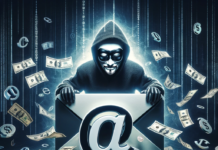Microsoft disclosed a significant breach in its email system. This incident, orchestrated by Nobelium, a Russian intelligence group, targeted the software giant’s highest echelons, compromising the email accounts of key executives. This disclosure, nestled in a routine regulatory filing on Friday, brings to light not just a singular event but a continuum of cyber warfare tactics employed by state-sponsored actors in the increasingly digital geopolitical landscape.
Nobelium: A Persistent Cyber Threat
Nobelium, notorious for the SolarWinds breach in 2020, has once again demonstrated its capability to infiltrate high-profile targets. The SolarWinds incident, one of the most consequential cyberattacks in recent history, involved the insertion of malicious code into the software updates of the IT management company, impacting numerous U.S. government agencies and corporations, including Microsoft.
Nobelium, also known under the aliases APT29 and Cozy Bear, and sometimes referred to by Microsoft as Midnight Blizzard, is recognized as a segment of Russia’s foreign intelligence service, the SVR. The group’s sophisticated tactics have not only targeted the United States but also its allies and the Department of Defense. Their history of cyber espionage is extensive, involving notable incidents such as the 2016 breach of the Democratic National Committee’s systems.
The Current Breach: A Detailed Analysis
The Breach Mechanics
The recent breach, detected last week by Microsoft, involved unauthorized access to a “legacy non-production test tenant account.” Nobelium exploited this account to gain entry into a minuscule fraction of Microsoft’s corporate email accounts. These accounts included those of senior leadership and employees in key departments like cybersecurity, legal, and other functions. The hackers successfully exfiltrated certain emails and attached documents.
Leadership Exposure
Among those whose accounts were compromised are members of Microsoft’s senior leadership team, who frequently convene with CEO Satya Nadella. This group includes pivotal figures like Chief Financial Officer Amy Hood and President Brad Smith. However, Microsoft has affirmed that there is no evidence of Nobelium gaining access to customer data, production systems, or proprietary source code.
The Broader Context: Cybersecurity in Times of Conflict
The timing of this breach is critical, coinciding with almost two years of Russia’s ongoing war against Ukraine. Such state-sponsored cyber activities often intensify during periods of armed conflict, posing heightened risks for the dissemination of sensitive data. This incident underlines the escalating cyber warfare tactics and the need for robust cybersecurity measures, especially for corporations like Microsoft that are integral to global digital infrastructure.
Microsoft’s Response and Regulatory Compliance
Following the discovery of the breach, Microsoft has been proactive in investigating and mitigating the impact. The company’s adherence to new U.S. regulations requiring the disclosure of cybersecurity incidents is evident in their transparent communication about the attack. Despite believing that the breach did not have a material effect, Microsoft chose to disclose the incident, aligning with the spirit of these new rules.
Government and Agency Involvement
The U.S. government, alongside various agencies, is deeply involved in understanding and addressing this breach. The Cybersecurity and Infrastructure Security Agency (CISA), under the guidance of executive assistant director for cybersecurity Eric Goldstein, is working closely with Microsoft. Their goal is to glean additional insights into the incident to safeguard other potential victims. As of now, there are no known impacts on Microsoft customer environments or products.
Historical Context: Previous Attacks and Vulnerabilities
This incident is not an isolated occurrence in Microsoft’s cybersecurity history. Last year, vulnerabilities in Microsoft software were exploited by China-aligned hackers, leading to the compromise of email accounts of senior U.S. government officials. This breach occurred ahead of a pivotal U.S.-China meeting, highlighting the geopolitical implications of such cyberattacks. Senator Ron Wyden criticized Microsoft’s cybersecurity practices in the wake of this incident, calling for more stringent measures.
The Way Forward: Ongoing Investigations and Collaborations
Microsoft’s commitment to addressing this security lapse is evident in its ongoing investigation and collaboration with law enforcement and regulatory bodies. The company is determined to implement necessary actions based on the investigation’s findings to bolster its cybersecurity framework.
Dimitris is an Information Technology and Cybersecurity professional with more than 20 years of experience in designing, building and maintaining efficient and secure IT infrastructures.
Among others, he is a certified: CISSP, CISA, CISM, ITIL, COBIT and PRINCE2, but his wide set of knowledge and technical management capabilities go beyond these certifications. He likes acquiring new skills on penetration testing, cloud technologies, virtualization, network security, IoT and many more.






